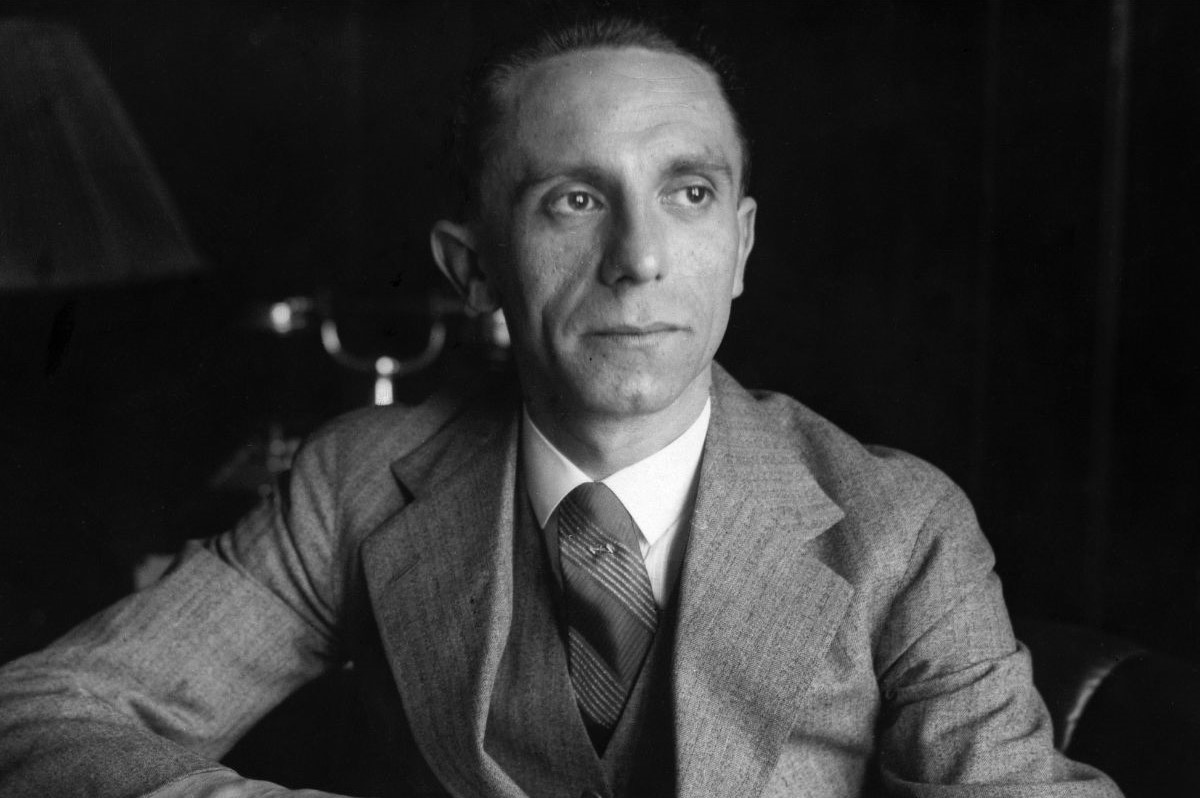
Who was Joseph Goebbels? Joseph Goebbels was a prominent figure in Nazi Germany, serving as the Minister of Propaganda under Adolf Hitler. Known for his oratory skills and manipulative tactics, Goebbels played a crucial role in spreading Nazi ideology and controlling the media. He was instrumental in shaping public opinion through films, radio broadcasts, and newspapers. His influence extended beyond propaganda; he was deeply involved in the persecution of Jews and other minority groups. Despite his intellectual background, Goebbels used his talents for destructive purposes, leaving a dark legacy. Understanding his life offers insights into the power of propaganda and its impact on society.
Key Takeaways:
- Joseph Goebbels, a key figure in Nazi Germany, used propaganda to manipulate public opinion and promote Nazi ideology, leaving a lasting impact on history.
- Despite his influential role in the Nazi regime, Goebbels' personal writings reveal moments of doubt and insecurity, showing a more complex individual than his public persona.
Early Life and Education
Joseph Goebbels, a key figure in Nazi Germany, had a complex and controversial life. Let's dive into some lesser-known facts about his early years and education.
- Born on October 29, 1897, in Rheydt, Germany, Goebbels was the third of five children.
- He suffered from a clubfoot, which led to a lifelong limp and feelings of inadequacy.
- Goebbels was a bright student, excelling in literature and history.
- He attended the University of Bonn, studying history and literature.
- He earned a Ph.D. in literature from the University of Heidelberg in 1921.
Political Rise
Goebbels' political career began in the early 1920s, eventually leading him to become one of Adolf Hitler's closest associates.
- He joined the Nazi Party in 1924, drawn by its nationalist and anti-Semitic ideology.
- In 1926, Hitler appointed him Gauleiter (regional leader) of Berlin.
- Goebbels founded the Nazi newspaper "Der Angriff" (The Attack) in 1927.
- He became the Nazi Party's chief propagandist, using media to spread their message.
- In 1933, he was appointed Minister of Propaganda and Public Enlightenment.
Propaganda Mastermind
Goebbels was a master of propaganda, using various media to manipulate public opinion and promote Nazi ideology.
- He orchestrated the infamous book burnings of 1933, targeting works by Jewish, communist, and liberal authors.
- Goebbels used radio broadcasts to reach millions of Germans, spreading Nazi propaganda.
- He controlled the film industry, producing movies that glorified the Nazi regime.
- Goebbels was behind the creation of the "Reich Chamber of Culture," which regulated all cultural activities.
- He coined the term "total war" in a 1943 speech, urging Germans to fully support the war effort.
Personal Life
Goebbels' personal life was as tumultuous as his political career, marked by numerous affairs and a troubled marriage.
- He married Magda Quandt in 1931, and they had six children together.
- Despite his marriage, Goebbels had numerous extramarital affairs, including one with Czech actress Lída Baarová.
- Magda Goebbels was a devoted Nazi, sharing her husband's beliefs and ambitions.
- The Goebbels family lived in a luxurious villa in Berlin, often hosting high-ranking Nazi officials.
- Goebbels was known for his lavish lifestyle, enjoying fine art, music, and literature.
Downfall and Death
As World War II came to an end, Goebbels' life took a tragic turn, culminating in his dramatic demise.
- In April 1945, Goebbels moved his family into Hitler's bunker in Berlin.
- He remained loyal to Hitler until the very end, even after the Führer's suicide on April 30, 1945.
- On May 1, 1945, Goebbels and his wife poisoned their six children.
- After killing their children, Joseph and Magda Goebbels committed suicide.
- Their bodies were found and partially burned by SS troops to prevent capture by the Allies.
Legacy and Impact
Goebbels' influence on Nazi Germany and propaganda techniques left a lasting impact on history.
- His propaganda methods are still studied today for their effectiveness and manipulation techniques.
- Goebbels' speeches and writings reveal his deep-seated anti-Semitism and belief in Nazi ideology.
- He played a significant role in shaping the public perception of Hitler and the Nazi Party.
- Goebbels' use of media to control information set a precedent for future totalitarian regimes.
- His legacy is a stark reminder of the power of propaganda in shaping public opinion and history.
Controversies and Myths
Goebbels' life and actions have been the subject of numerous controversies and myths, some of which persist to this day.
- Some historians argue that Goebbels' propaganda efforts were crucial to the Nazi Party's rise to power.
- There are myths that Goebbels was the mastermind behind many of Hitler's decisions, though evidence suggests he was more of an enabler.
- Goebbels' diaries, discovered after the war, provide a detailed account of his thoughts and actions during the Nazi era.
- Despite his role in the Nazi regime, Goebbels' personal writings reveal moments of doubt and insecurity, showing a more complex individual than the public persona he projected.
Reflecting on Joseph Goebbels
Joseph Goebbels remains one of history's most infamous figures. His role as the Nazi propaganda minister showcased his ability to manipulate public opinion and spread Nazi ideology. Goebbels' speeches and writings fueled anti-Semitic sentiments and supported Hitler's agenda. Despite his intelligence and oratory skills, his actions led to immense suffering and the loss of countless lives.
Understanding Goebbels' life and actions provides insight into the dangers of propaganda and the power of media manipulation. His legacy serves as a stark reminder of the consequences of unchecked power and the importance of critical thinking. By studying figures like Goebbels, we can learn to recognize and resist similar tactics in today's world.
In the end, Goebbels' story is a cautionary tale about the potential for evil when power is used to deceive and control.
Frequently Asked Questions
Was this page helpful?
Our commitment to delivering trustworthy and engaging content is at the heart of what we do. Each fact on our site is contributed by real users like you, bringing a wealth of diverse insights and information. To ensure the highest standards of accuracy and reliability, our dedicated editors meticulously review each submission. This process guarantees that the facts we share are not only fascinating but also credible. Trust in our commitment to quality and authenticity as you explore and learn with us.


